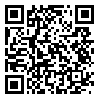BibTeX | RIS | EndNote | Medlars | ProCite | Reference Manager | RefWorks
Send citation to:
URL: http://jdisabilstud.org/article-1-2709-en.html
2- Department of Psychology, Allameh Tabataba’i Univeisity
3- Department of Clinical Psychology, Allameh Tabataba’i Univeisity
4- Psychometrics Group, Allameh Tabataba’i Univeisity
Background & Objectives: The family is one of the main pillars of Islamic society and women play an important role in it. However, extramarital affairs, which are also considered adultery, can destroy the family structure. One of the essential teachings in Islamic culture is the use of spiritual and religious dimensions. Various studies have shown that personal characteristics play a major role in extramarital relationships. Impulsivity, which is one of the main structures of personality, along with low responsibility, is a strong predictor of extramarital relationships. For most people, infidelity is having sex with a third party outside of a marital relationship. Assertiveness means the ability to express feelings, opinions, and attitudes honestly and without feeling anxious. Since abstinence in everything, including sexual issues, requires the acquisition of "skills," one of the important issues is the training of sexual abstinence skills. Therefore, considering the effect of extramarital relationships on the family system, this study aimed to investigate the effect of sexual abstinence education based on Islamic teachings on impulsivity, assertiveness, infidelity, and self–confidence of women involved in extramarital relationships.
Methods: This research was conducted as a single–subject study with an ABA design. The statistical population of the study was all women involved in extramarital affairs who were referred to Saeedeh Institute of Mental Development and Counseling in Tehran city, Iran between July and September 2016. The sampling method was purposeful and 5 people were selected who met the inclusion and exclusion criteria. The inclusion criteria included being 25 years or older, holding a diploma or higher degree, and signing a written consent. The exclusion criteria included the presence of personality disorders, substance use, medication and cognitive–behavioral therapy up to three months before the study. Data collection tools were Eysenck Self–Confidence Questionnaire (Eysenck, 1977), Barratt Impulsiveness Scale (Patton et al., 1995), Assertiveness Inventory for Adults (Gay et al., 1975), and Attitudes toward Infidelity Scale (Whatley, 2008). Before starting the treatment, to determine the baseline, the variables of impulsivity, assertiveness, infidelity, and self–confidence were tested (stage A). Then the training stage (stage B) was performed and during the training, the variables were measured, and finally, an evaluation was performed for follow–up (stage A). The treatment protocol was prepared and evaluated by Kheirkhah (2021). After preparing the initial draft of the techniques and steps of the treatment, the intervention sessions were reviewed at different times by the supervising professors and the presentation of the techniques was modified. Then sexual abstinence intervention was presented to eight experts who had the necessary knowledge for a survey. Data analysis was performed using reliable change index (RCI) and improvement percentage methods.
Results: The results showed that, the improvement rate of the variable of infidelity was more than 80% in the subjects. Also, the variables of assertiveness improved between 53% to 87%, impulsivity between 50% to 61%, and self–confidence between 50% to 136% which was clinically significant. Also, the average reliable change index (RCI) was calculated once after the end of all intervention sessions and once after the follow–up session. This index was greater than 1.96 in all variables and all subjects, indicating an improvement in the research variables in the subjects.
Conclusion: Based on the findings of this study, it is concluded that the educational package of sexual abstinence based on Islamic teachings reduces impulsivity and infidelity and increases assertiveness and self–confidence in people involved in extramarital affairs.
| Rights and permissions | |
 |
This work is licensed under a Creative Commons Attribution-NonCommercial 4.0 International License. |




